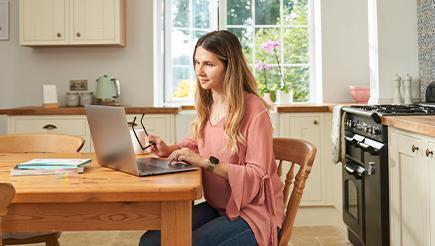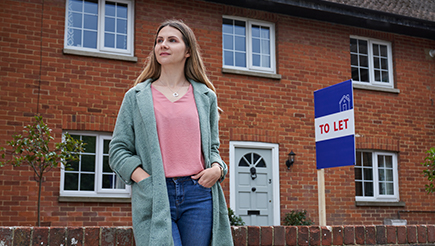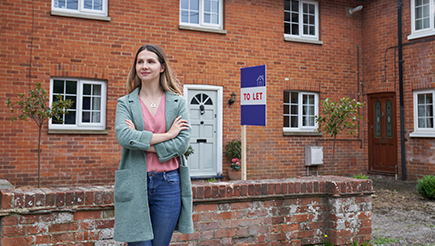Being a good landlord means a lot of things. From looking after your rental property and making sure your tenants are happy, to keeping on top of legislation and performing the necessary inspections, it’s filled with a lot of responsibilities.
But no one’s just a landlord. You’ve also got a career, a family, friends – a life beyond landlording. So how do you find the time to manage it all and do it well?
To help, here are AXA’s tips to save time (and money) so you can relax at the end of a busy day knowing your tenants are sitting comfortably.
Tip one: Create an inventory list
This may sound like a no-brainer, but never underestimate the importance of creating a thorough inventory before your tenants move in. It may seem time-consuming to list every item, every scratch, every working lightbulb, but it will save you a lot of hassle and headaches in the long-term.
List the items in every room, including their condition. If possible, include photographs for reference too. At the end of the tenancy, you can make sure that standards have been upheld, with any visible damage to be accounted for and rectified by the tenant.
Tip two: Conduct pre-move inspections
Before a tenant moves in or out of your property, it’s a good idea to conduct an inspection to make sure everyone is on the same page concerning the condition of the property.
Offer to walk through the property with your tenant in advance of the actual move-in or move-out date, and point out the condition of the rooms and furniture. Making sure you’re all on the same page now will avoid any long disputes later about security deposits and repayments for damaged items.
And remember to vet your tenants too. Conduct a background check and, if renting in England, make sure to carry out right to rent checks.
Tip three: Be future forward
Calculate the money you’ll need to spend on upkeep and maintenance over the coming years. Set aside a fixed amount of rent each month to cover emergencies such as having to buy new furniture or replacing a busted boiler last minute. By regularly redecorating the property every couple of years, landlords can hopefully avoid a far bigger overhaul at the end of a tenancy – which could incur unwelcome void periods prior to new tenants moving in.
Investing in your rental property is essential to providing a quality home for your tenants. After all, by looking after them, they’re more likely to look after you (and your property).
Tip four: It comes down to quality, not cost, when buying appliances
Maintenance is arguably one of the most time-consuming aspects of being a landlord—but how do you avoid loads of little fixes when you don’t have the time or money to spare? The answer is quality.
Invest in high-quality products instead of cheap and cheerful quick solutions to save you time in the long run. Often, landlords look at cost comparison sites when shopping for appliances, but don’t forget to factor in durability, ease of repair and cost of replacement parts when browsing. New isn’t always the answer, so consider the lifetime value of each appliance now to save you a headache later.
Tip five: Digitally manage your tenants
From collecting rent, keeping tabs on calls and collecting rent, the day-to-day demands of tenant management can be time-consuming. Luckily, there are apps out there to make this aspect of your job more streamlined.
AppFolio automates various landlord tasks, including one-click vacancy posting, online leases and payments, in-app accounting and automated late fees. Landlord Studio also lets you track your income and rent payments online, and you can also keep track of your expected profits through an online rental yield calculator. Be sure to keep up to date with market trends and average rental prices too via sites like Zoopla, Rightmove and FindProperty.
Tip six: Use an app to track spending
While tracking your rent, maintenance fees and equipment costs is crucial, you can’t ignore your personal finances either. Making sure you know what’s coming in and what’s coming out of your bottom line will help you avoid any unexpected surprises if rent is paid late or if you’re hit with an unexpected repair cost.
MoneyWiz could help you manage multiple streams of income from your regular job as well as your rental income. If you’ve got loads of regular expenses, Dollarbird, which is structured like a calendar showing all your upcoming expenses, could be a big time-saver.
Tip seven: Invest in professional advice
Consult a legal professional to help you draw up a solid tenancy agreement on which your property will be let. Familiarise yourself with the major components of the agreement - especially any small print about pets etc. -and ensure your tenant does the same.
Investing a little effort now will save a lot of time if there are any disputes during or after a tenancy has ended.
Tip eight: Make safety a priority
As a landlord, safety should always be your number one priority. As well as being a legal requirement, regular checks and maintenance of gas systems, electricity and smoke alarms will save you time in the long run.
Make every effort to ensure that gas and electricity suppliers conform to regulations and are maintained and checked by a registered engineer. Install smoke-alarms and carbon monoxide alarms and check them regularly. For more details, visit the UK Government’s guide to safety responsibilities for landlords.
Tip nine: Give your tenants a welcome kit
A little effort up front can go a long way down the line, so why not make sure you start a tenancy off on the right foot with a ‘welcome to your new home’ pack?
Keep contact details of dependable local plumbers, electricians and handymen who can deal with any problems that arise at short notice. Add a welcome gift like a bottle of wine, notes about the local area and restaurant recommendations to help them feel welcome in their new home. This personal touch when your tenants move in could help keep the tenant happy and willing to renew the lease later, saving you time searching for another placement.
Tip ten: Get the right insurance
If you’re renting your property to tenants, you’ll need more than just home insurance. That’s whether you’re a buy-to-let landlord, or an accidental landlord renting out a house you’re struggling to sell, because there’s risks associated with a rented property that won’t be covered under a standard home insurance policy.
With the right cover, unexpected events won’t leave you seriously out of pocket. That’s one less thing to worry about, so you can get back to spending your time on what matters most to you.






